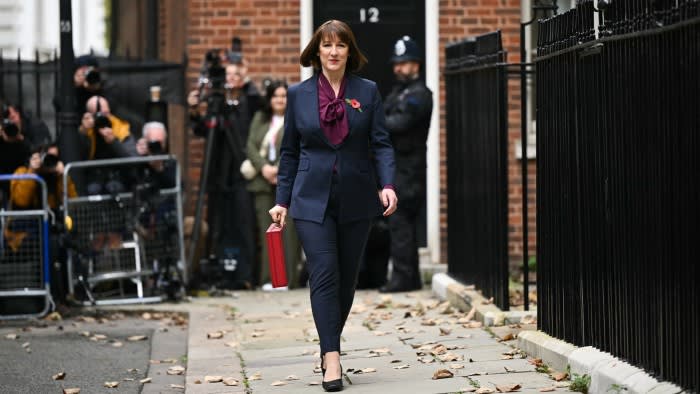Unlock the Editor’s Digest for free
Roula Khalaf, Editor of the FT, selects her favourite stories in this weekly newsletter.
Rachel Reeves’ increase in national insurance contributions will hit lower-wage, labour-intensive parts of the UK economy hardest, according to an analysis that came as the chancellor acknowledged her policies could dampen pay growth.
The Institute for Fiscal Studies found that the decision in the Budget to slash the earnings threshold at which NI contributions are first paid by businesses from £9,100 to £5,000 would be highly consequential for workers as well as employers.
The measure would raise the cost of employing a worker in the bottom fifth of earners by more than 4 per cent, while the cost of an employee in the top fifth of earners would rise only by about 1.5 per cent, the think-tank said on Thursday.
This is despite the Labour government’s pledge to ensure the costs of fixing the public finances fall hardest on “those with the broadest shoulders”.
Reeves announced tax increases of more than £40bn in her first Budget on Wednesday, including a £25bn increase in employer NI contributions, which will rise by 1.2 percentage points to 15 per cent from April.
She said the fiscal event would lay the foundations for higher growth, better public services — notably the NHS and schools — and lock in financial stability.
On Thursday, Reeves told the BBC that businesses would have to absorb some of the extra cost through profits, adding that it was “likely to mean that wage increases might be slightly less than they otherwise would have been”.
But she cited analysis by the Office for Budget Responsibility that forecasts household incomes still increasing in this parliament. The fiscal watchdog’s outlook shows real household disposable income per person, a measure of living standards, will grow by an average of just over 0.5 per cent a year over its five-year forecast.
The IFS report showed employers in low-paying sectors would also be less able to recoup the costs by squeezing wages over time because they are constrained by a rising minimum wage.
The real-terms cost of employing a minimum wage worker would increase by 8 per cent for a full-time employee next year and by 11 per cent for a part-time employee — the sharpest rise on record.
Isaac Delestre, IFS research economist, said the increases in the cost of employment made it “worth worrying” about job losses, as well as the increased incentives to shift towards hiring self-employed contractors.
Employers are warning that they face further pressure because of the 6.7 per cent increase in the national living wage from April 2025, as well as employment law reforms designed to boost workers’ rights.
Official estimates suggest the government’s package of workplace reforms will cost business up to £5bn a year, with the biggest impact on low-paying sectors such as hospitality.
Overall, the combined impact of benefit cuts, employer NI rises and consumption tax changes will be felt evenly across the income distribution, according to a separate report from the Resolution Foundation think-tank.
The poorest half of households will experience a 0.8 per cent reduction in their annual income, while the richest half face a 0.6 per cent decline, the researchers said on Thursday.
Despite concerns about where the burden of the tax rises will fall, Reeves won the backing of the IMF for her fiscal strategy. The fund said it supported the “envisaged reduction in the deficit over the medium term”, which is achieved by “sustainably” raising revenue.
Reeves acknowledged she could yet be forced to raise revenues higher in future, after her Budget pushed the tax burden to a new record of 38.2 per cent of GDP.
In an interview with Sky News, she said: “I’m not going to make a commitment to never change taxes again. That would be irresponsible. But this is a once-in-a-parliament Budget.”
Conservative shadow chancellor Jeremy Hunt said Reeves’ tax rise, with business and the wealthy bearing the brunt, represented “the biggest assault on our economic competitiveness since the 1970s” and would backfire.
Richard Hughes, OBR chair, told the BBC that the £25bn increase in employer NI contributions would feed through to workers. “Putting up taxes on payroll is bad for labour supply,” he said.
Hughes noted that while the increase in state spending over the next two years would temporarily boost GDP, growth would return to a rate of about 1.5 per cent towards the end of the parliament.
He said this reflected the fact that the economy was running at close to full capacity and that some of the extra public investment — funded by a wave of new borrowing — would crowd out private investment.
